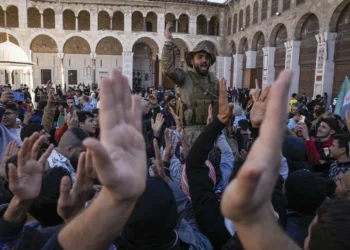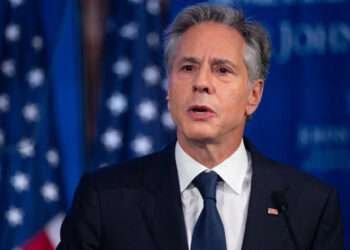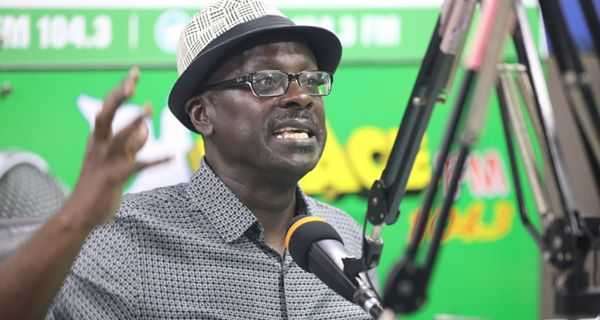North Korea fired an intercontinental ballistic missile that landed near Japanese waters Friday, November 18, 2022 in its second major weapons test this month. This depicted a possibility for the country to launch nuclear strikes on all of the United States mainland.
North Korea’s recent run of weapons tests aims to advance its nuclear arsenal and win greater concessions in future diplomacy. It comes as China and Russia have opposed United States attempts to toughen United Nations sanctions aimed at curbing North Korea’s nuclear program.
South Korea’s Joint Chiefs of Staff said it detected the Intercontinental Ballistic Missile launch from North Korea’s capital region around 10:15 a.m near the North Korean capital Pyongyang.
According to South Korean and Japanese estimates, the missile flew 6,000-6,100 kilometers (3,600-3,790 miles) at a maximum altitude of 1,000 kilometers (620 miles).
North Korea had launched an Intercontinental Ballistic Misile on November 3, 2022 but experts stated that the weapon failed to fly its intended flight and fell into the ocean after a stage separation. That test was believed to have involved a developmental missile called Hwasong-17.
North Korea has two other types of intercontinental ballistic missiles (ICBMs); Hwasong-14 and Hwasong-15 and their test launches in 2017 showed they could potentially reach parts of the U.S. homeland.
North Korea’s pattern over the past months has been to launch missiles in response to United States military activity around the Korean Peninsu
North Korean Foreign Minister, Choe Son Hui threatened to launch “fiercer” military responses to steps by the United States to strengthen its security commitment to South Korea and Japan.
Choe Son Hui had made this statement in reference to President Joe Biden’s recent meeting with South Korean President, Yoon Suk Yeol and Japanese Prime Minister, Fumio Kishida on the sidelines of a regional gathering in Cambodia.
In their joint statement, the three leaders strongly condemned North Korea’s recent missile tests and agreed to collaborate to strengthen deterrence. Biden reiterated the United States’ commitment to defend South Korea and Japan with a full range of capabilities, including nuclear weapons.
United States Calls For Halt Of Missile Launch
The United States quickly disapproved the launch and has vowed to take “all necessary measures” to guarantee the safety of its territory and its allies South Korea and Japan.
Vice President, Kamala Harris held a meeting with the leaders of those countries and of Australia, Canada and New Zealand who are attending a regional forum in Bangkok to discuss the launch.
“We again call for North Korea to stop further unlawful, destabilizing acts. On behalf of the United States, I reaffirm our ironclad commitment to our Indo-Pacific alliances. Together the countries represented here will continue to urge North Korea to commit to serious and sustained diplomacy.”
Kamala Harris, US Vice President
Spokesperson of the U.S. National Security Council, Adrienne Watson said the launch “needlessly raises tensions” and shows that North Korea is prioritizing unlawful weapons programs over the wellbeing of its people.
“Pyongyang must immediately cease its destabilizing actions and instead choose diplomatic engagement,” Watson opined.
In his opening comments at the meeting in Bangkok, Japanese Prime Minister Fumio Kishida labelled the launch as “utterly unacceptable,” saying the missile fell inside Japan’s exclusive economic zone west of Hokkaido.
South Korean Prime Minister Han Duck-soo said the international community must work together to get North Korea to realize that each of its provocations only deepens its international isolation and economic hardship.
South Korean President, Yoon Suk Yeol, earlier ordered officials to boost security cooperation with the United States and Japan and implement unspecified deterrence steps that were previously agreed upon with Washington. Yoon also ordered officials to push for strong international condemnations and sanctions on North Korea.
North Korea has been under multiple rounds of United Nations sanctions over its earlier nuclear and missile tests. Nonetheless, no new sanctions have been applied this year as it has conducted dozens of ballistic missile launches, which are banned by United Nations Security Council resolutions.
READ MORE: Finance Minister Must Resign Or Be Sacked With BoG Governor – Cape Coast South MP





















